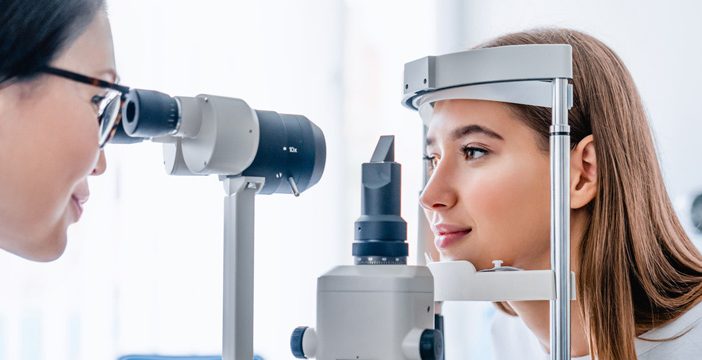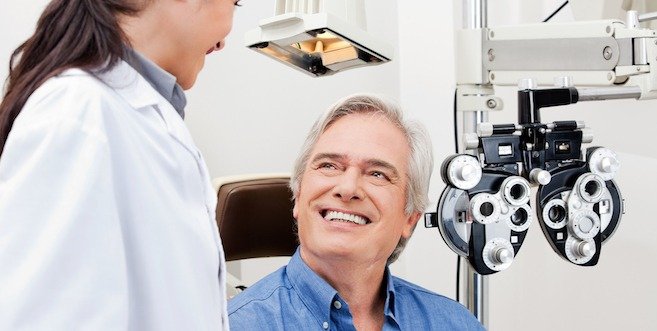
One of the more common complications of diabetes is eye damage (retinopathy). It is caused by damage to the blood vessels in the part of the eye called the retina. The retina is composed of a layer of nerves located at the back of the eye.
In people with diabetes, retinopathy happens when blood glucose levels are high over a long period of time. Read on to learn about 4 tips that can help you prevent or delay eye damage from diabetes.
1. Control your blood sugar
High blood sugar causes damage to the nerves in your body, including the nerves in your eyes. Keeping your blood sugars in their target range is the most important thing you can do to protect your eyes.
The Diabetes Control and Complications Trial, a large study conducted in the 1990s, found that lowering blood glucose levels into the target range – and keeping them there – reduced the risk of eye disease by a whopping 76%.
The recommended blood sugar targets for most people with diabetes are:
| A1C (%) | Blood glucose before meals (mmol/L) | Blood glucose two hours after a meal (mmol/L) | |
|---|---|---|---|
| Target for most people with diabetes | 7.0 or less | 4.0 to 7.0 (4.0 to 5.5* if A1C targets are not being met) | 5.0 to 10.0 (5.0 to 8.0* if A1C targets are not being met) |
- Balance against risk of hypoglycemia
2. Have your eyes tested regularly
People with type 2 diabetes should be tested for retinopathy when they’re first diagnosed. After that, they should have their eyes tested every two years. If you develop retinopathy, you should have an eye test more frequently.
Women with diabetes who hope to become pregnant should be screened before they conceive a baby. During pregnancy they should be screened during the first trimester, as needed during pregnancy and within the first year after giving birth.
3. Control your blood pressure and cholesterol levels
High blood pressure or high cholesterol levels can make eye problems worse because of the nerve damage that they cause. If your diabetes healthcare team has given you medications for blood pressure or cholesterol, be sure to take them as prescribed. The targets for people with diabetes are:
- Blood pressure: less than 130/80 mmHg
- Low-density lipoprotein cholesterol: 2.0 mmol/L or lower
4. If you smoke, try to quit
Smoking causes damage to the blood vessels in your body, including those in your eyes. This can result in retinopathy and loss of vision. If you already have retinopathy, smoking can make it worse.
How will I know if I have retinopathy?
Symptoms of retinopathy include:
- Blurred vision
- Flashes of light in your field of vision
- Blotches or spots in your field of vision
- Sudden loss of vision
See an eye care professional (either an optometrist or an ophthalmologist) if you are having any of these symptoms. Remember, though, in the early stages of retinopathy some people don’t experience any symptoms at all. That’s why it is important that you have regular eye tests.



